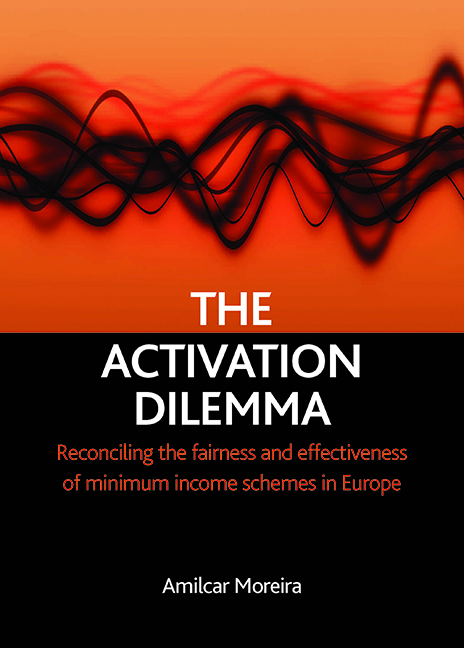 The Activation Dilemma
The Activation Dilemma Book contents
- Frontmatter
- Dedication
- Contents
- List of tables and figures
- List of abbreviations
- Acknowledgements
- one Introduction
- two The right to a minimum income: between Mead and Van Parijs
- three Justifying a minimum income guarantee: the right to personal development
- four The activation dilemma: a comparative study
- five Measuring respect for the right to personal development
- six The employment effectiveness of minimum income schemes
- seven The employment effectiveness of minimum income schemes and their respect for the right to personal development
- eight Conclusion
- Appendix A Methodology for benefit comparison
- Appendix B Unemployment reintegration capacity (URC): sensitivity analysis
- Appendix C Qualitative comparative analysis: laws of Boolean algebra
- References
- Index
- Also available from The Policy Press
five - Measuring respect for the right to personal development
Published online by Cambridge University Press: 21 January 2022
- Frontmatter
- Dedication
- Contents
- List of tables and figures
- List of abbreviations
- Acknowledgements
- one Introduction
- two The right to a minimum income: between Mead and Van Parijs
- three Justifying a minimum income guarantee: the right to personal development
- four The activation dilemma: a comparative study
- five Measuring respect for the right to personal development
- six The employment effectiveness of minimum income schemes
- seven The employment effectiveness of minimum income schemes and their respect for the right to personal development
- eight Conclusion
- Appendix A Methodology for benefit comparison
- Appendix B Unemployment reintegration capacity (URC): sensitivity analysis
- Appendix C Qualitative comparative analysis: laws of Boolean algebra
- References
- Index
- Also available from The Policy Press
Summary
In line with the plan of analysis outlined earlier, the purpose of this chapter is to measure the respect for recipients’ right to personal development in the schemes under analysis. As seen earlier, this normative framework states that every individual has a right to exploit his/her talents, which can be exercised while performing a social function in society, such as paid employment, unpaid work in social economy organisations or providing care to dependent family members, or improving his/her human capital through education or training. In order to secure this right, social actors and institutions must:
• meet the individual's basic consumption needs;
• eliminate direct and indirect constraints to the individual's choices on the best way to exploit his/her talents;
• provide the individual with opportunities to exploit his/her talents;
• enforce, through the use of restitutive sanctions, the individual's obligation to exploit his/her talents as to enable the personal development of others.
The next sections look at the institutional features that best reflect the spirit of this normative framework. In order to best assess how the various schemes compare, the final section then combines these features as an index of respect of the right to personal development
Provision of an adequate level of income
The obvious start for this exercise will be to look at how schemes satisfy recipients’ basic consumption needs. As seen earlier, these can include the need for an adequate level of income, healthcare and adequate housing. However, bearing in mind the mediating role of income in accessing healthcare and adequate housing, the focus here is on the level of income recipients receive. Hence, the purpose is to measure to what degree minimum income schemes provide a level of income that allows recipients to fully participate in society.
Assuming that each individual requires a minimum level of income to fully participate in society, which can be identified by what is know as a ‘poverty line’, this can be measured by comparing recipients’ ‘total household net disposable income’ – or more succinctly, disposable income – with the value of the poverty line (here set at 60% of the median equivalised income) of their country of residence (Eurostat, 2003b, p 3).
- Type
- Chapter
- Information
- The Activation DilemmaReconciling the Fairness and Effectiveness of Minimum Income Schemes in Europe, pp. 65 - 84Publisher: Bristol University PressPrint publication year: 2008
